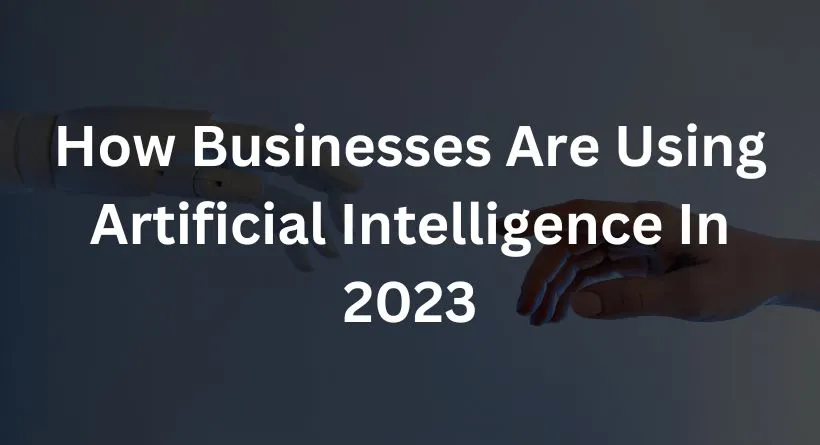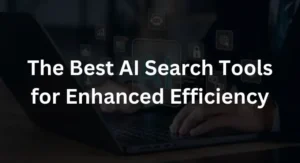
Artificial Intelligence (AI) has rapidly evolved over the years and is now playing a pivotal role in transforming the way businesses operate in 2023. As we delve into this topic, we will explore how AI is integrated into various aspects of business operations and its growing impact on the corporate landscape.
The Growing Role of Artificial Intelligence
Artificial Intelligence has become more than just a buzzword; it’s an integral part of business strategies. In 2023, it’s all about harnessing AI’s power to gain a competitive edge. Companies are recognizing the importance of data-driven decision-making, and AI enables them to analyze vast datasets quickly and accurately.
AI in Customer Service
One of the primary areas where AI is making waves is in customer service. Chatbots and virtual assistants powered by AI are providing customers with immediate responses to their queries. This not only enhances customer satisfaction but also reduces operational costs for businesses.
You may also like reading: Why and How Should Businesses Use Artificial Intelligence?
AI in Marketing and Advertising
AI is revolutionizing marketing and advertising. It allows businesses to analyze customer behavior and preferences, enabling them to tailor marketing campaigns more effectively. Personalized advertising increases customer engagement and boosts conversion rates.
AI in Product Development
AI is helping businesses in product development by predicting market trends and consumer demands. It assists in creating innovative products that align with the needs of the target audience.
AI in Supply Chain Management
Efficient supply chain management is crucial for businesses, and AI is optimizing this aspect. Predictive analytics and automation help in minimizing delays and reducing costs. Businesses are achieving better control and visibility over their supply chains.
AI in Healthcare
The healthcare industry is leveraging AI for diagnostic purposes, drug discovery, and patient care. AI-powered machines can quickly and accurately analyze medical images and provide insights that lead to more accurate diagnoses and better patient outcomes.
AI in Financial Services
In the financial sector, AI is used for fraud detection, risk assessment, and algorithmic trading. It enhances security and improves decision-making in the complex world of finance.
AI in Human Resources
AI simplifies and streamlines HR processes, from recruitment to employee engagement. It can analyze resumes, conduct initial interviews, and even predict employee turnover, enabling HR professionals to make more informed decisions.
Ethical Considerations

As businesses embrace AI, they must also address ethical concerns. Issues related to data privacy, bias in AI algorithms, and job displacement must be carefully managed to ensure responsible AI usage.
Challenges of Implementing AI
Implementing AI is not without its challenges. Businesses often face obstacles such as data quality, integration issues, and the need for AI talent. These challenges require careful planning and investment.
Future Trends in AI
The evolution of AI is ongoing. In the future, we can expect AI to play an even more substantial role in business operations. This may include further automation, enhanced AI-driven decision support, and the proliferation of AI in new industries.
Case Studies
To illustrate how AI is being used in 2023, we’ll explore a few case studies of businesses that have successfully integrated AI into their operations.
Conclusion
In 2023, AI is no longer a novelty but a necessity for businesses. It enhances efficiency, reduces costs, and opens up new opportunities. As we move forward, AI will continue to shape the business landscape, making it imperative for companies to adopt and adapt to this transformative technology.
FAQs
Is AI only for big corporations, or can small businesses also benefit from it?
AI is accessible to businesses of all sizes. Small businesses can benefit from AI in various ways, from automating tasks to improving customer service.
What are the key ethical concerns related to AI in business?
Ethical concerns in AI include data privacy, algorithm bias, and the potential for job displacement.
How can businesses address the talent gap in AI expertise?
Businesses can train their existing employees, collaborate with AI experts, or hire professionals with AI expertise to bridge the talent gap.
What are some notable AI trends to watch out for in the coming years?
In the near future, we can expect increased automation, more AI-driven decision support tools, and AI’s expansion into industries like agriculture and education.
Can AI completely replace human employees in certain industries?
While AI can automate many tasks, it is unlikely to completely replace human employees. Instead, it often enhances their capabilities and supports their decision-making processes.





